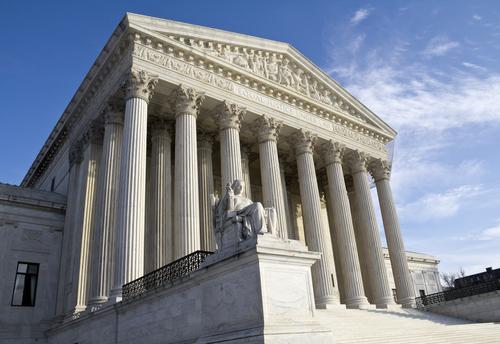

“Don’t throw the baby out with the bathwater”: this saying actually originates–at least anecdotally–from the process of families sharing a single bathtub full of water. Starting with the head of the household and working their way down, the end of the process saw the baby bathed last, in what was by that point some pretty foul water. Whether or not there’s any truth to that origin story, the saying persists to this day, and it’s a great metaphor for examining the King v. Burwell case being heard by the Supreme Court today. At issue, primarily, is whether or not it is legal for the federal government to provide health insurance subsidies to individuals who purchase a plan through a federal–rather than a state-run–exchange. The government says of course it is. The plaintiffs say it is not. For a deeper dive into the issue, I would recommend that you read this piece from Kaiser Health News and this piece from the Washington Post.
What happens if the Court sides with the Plaintiffs, making federal health insurance subsidies illegal? Well, barring any corrective action on the part of Congress, the White House, and/or the many states with federally-run exchanges, the results are rather bleak: On average, the price of health insurance premiums would increase by 255% nationwide. In Mississippi, the premiums could increase a staggering 779%. Directly affected by these spikes in prices would be the approximately 8 million people, spread over 37 states, who would no longer be allowed to receive federal subsidies to help them purchase their coverage at a more affordable rate. If and when such alarming rate increases occur, health insurance would be considered “unaffordable” for those individuals, meaning they could drop coverage without having to pay a penalty for being uninsured. In fact, the only people who would dare to pay such high rates to keep their coverage would be those who are extremely sick. This, of course, shifts the math calculation that goes into determining the cost of insurance (that is, the risk pool determines premium rate setting), and pretty soon the insurance markets in those states would be on a course to complete collapse. From that standpoint, if what the Republicans want to do is precipitate the perfect conditions for a single payer system, they should continue to hope that the Court strikes down the subsidies. The problem is that real lives would be affected.
Meanwhile, the White House and the Department of Health and Human Services say there basically is no plan B. That’s their official position, but it’s not likely to be true. You see, they don’t want to act like the plaintiff’s position has any merit, and coming out with a backup plan would suggest that the Obama Administration at least considers it a possibility. But they’re not stupid. Of course they’re working on a contingency plan behind the scenes, and it looks like the plan is already being circulated internally. For more, and a particularly interesting audio interview, click here. Others, however, are also suggesting that the GOP has its own plan B in place.
But what about that subsidy in the bathwater? What am I talking about? Well, it’s precisely this: There are a lot of people who probably hope that the Supreme Court finds for the plaintiffs and that federal subsidies become illegal outside of state-run health insurance exchanges. In fact, many of these people probably hope for such a decision because they’re optimistic that it might precipitate the collapse not only of some states’ health insurance markets, but also the entire Affordable Care Act to which they’re so opposed. You see, they see this law–this ObamaCare–as symbolic of a lot of things they dislike. They think it gives handouts to the lazy who refuse to work, while tightening the financial screws on the honest, hard-working American who’s just trying to put food on the table. Or, they think that it means the government is going to get its hands all over the Medicare program and harm seniors’ health benefits in the process. To these people, ObamaCare is dirty bathwater, and they hope that the Court turns the tub over and dumps the whole thing out, just because there’s a baby in there.
But what about the baby in that bathwater? The subsidy? You see, people like to point their fingers at others–those who are perhaps not like themselves–and say that they don’t “deserve” a subsidy. They think such subsidies are not babies, but merely more dirty bathwater to be done away with. Yet, if you are one of the 158 million Americans who gets health insurance through your employer, guess what? The federal government is subsidizing your insurance by not taxing it. And to the tens of millions of Americans with Medicare, guess what? The federal government is subsidizing your insurance. Yet, when asked, some 93% of Americans age 65 and over (Medicare recipients) said they did not receive subsidized health insurance (read page 41 of this report for the data).
It’s convenient, isn’t it, to pass judgment on something that will adversely affect a whole group of people from enjoying a government benefit that you yourself are quite likely to enjoy if you a) have a job and/or b) live long enough, just because you’ve convinced yourself that you’re not receiving a handout and/or those other people don’t deserve a handout because they are different than you. In all of this, I can see only two equitable solutions: Either everyone in need must be able to receive a federal subsidy to purchase health insurance, or all the rest of us who have been ignorantly and blissfully enjoying our subsidies need to kiss our babies goodbye.
Supreme Court / shutterstock







